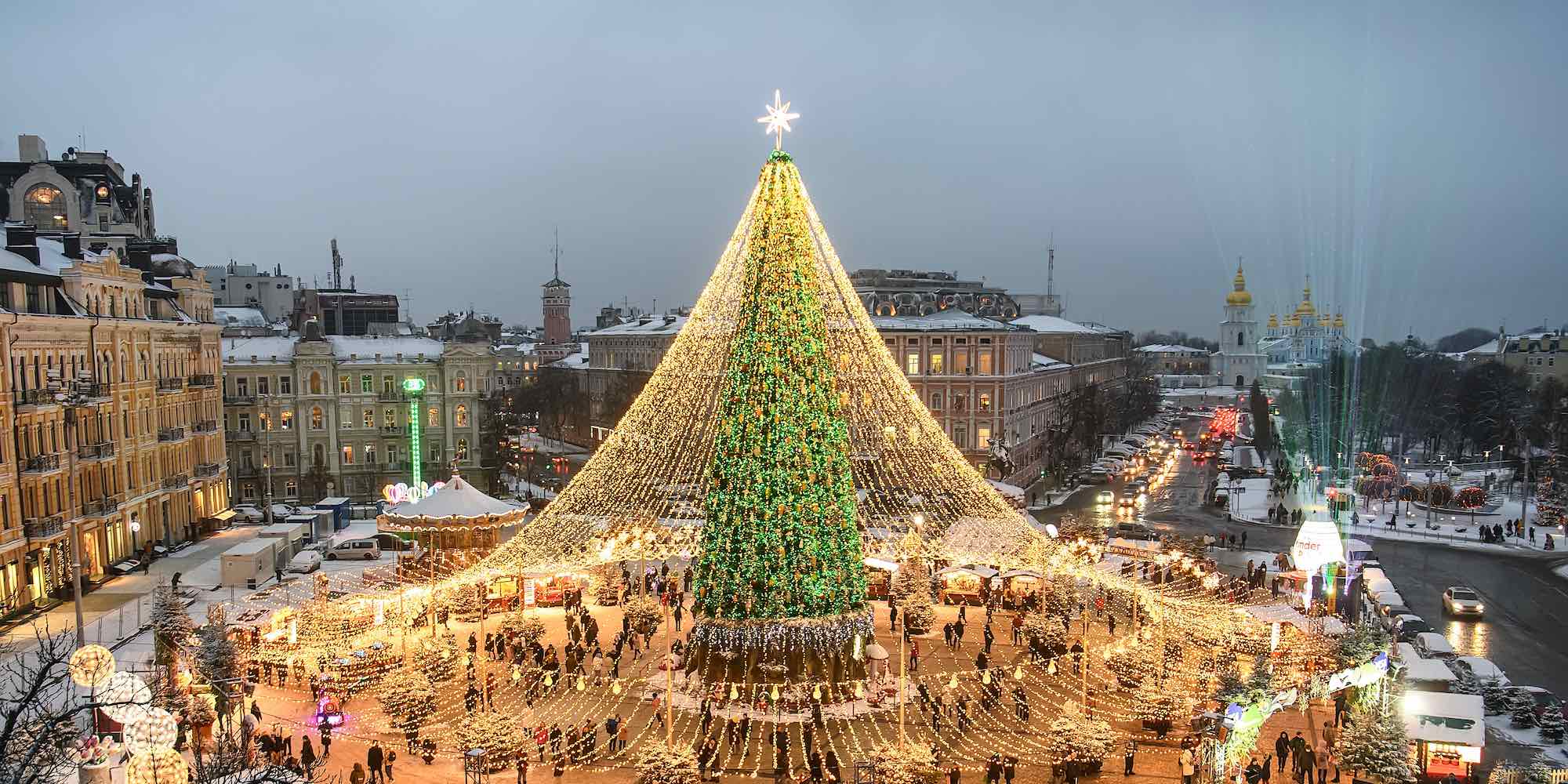
Christmas Season in Ukraine: A Magical Celebration from December to Mid-January
The Christmas season in Ukraine is truly magical, stretching from early December until mid-January. It’s a time filled with warmth, family, and cherished traditions. With each holiday offering something special, Ukrainians celebrate with heartfelt joy, bringing their unique customs to life. Let’s take a friendly stroll through the key holidays of this festive season and see how Ukrainians celebrate them!
1. St. Mykolay Day (December 6th or December 19th)
This is the day every Ukrainian child waits for! St. Mykolay (Saint Nicholas) is the Ukrainian version of Santa Claus, and on the night of December 18, kids clean their boots or stockings and leave them by the window or the door. If they’ve been good, they’ll find gifts, sweets, or small toys the next morning. If not…well, they might find a twig (different from coal!).
For adults, this holiday is about generosity and kindness. Many people organize charity events or surprise loved ones with small acts of care. Schools and kindergartens also hold concerts or plays about St. Mykolay, where kids perform songs and poems dedicated to the saint.
2. Western Christmas (December 25)
Although most Ukrainians traditionally celebrate Orthodox Christmas, December 25 is becoming more popular, especially in cities and among younger generations. It’s now a public holiday, giving people an extra reason to gather with family and friends.
Some families enjoy decorating their Christmas trees earlier in December and exchanging gifts on this day. Churches hold beautiful services, and it’s common for friends to gather for cozy dinners with plenty of festive dishes like kutia (a sweet wheat pudding) and varenyky (dumplings). Think of it as a warm-up for the bigger celebrations in January!
3. New Year’s Eve and Day (December 31 - January 1)
New Year’s in Ukraine is the biggest celebration of the season! Ukrainians go all out with grand feasts, fireworks, and lively parties. On New Year’s Eve, families gather for a late-night dinner filled with festive dishes like olivye (a classic salad), pickled vegetables, and sparkling wine.
When the clock strikes midnight, everyone raises a toast, exchanges wishes for a happy and healthy new year, and enjoys fireworks lighting up the sky. Children eagerly wait for Ded Moroz (Grandfather Frost) and Snihuronka (the Snow Maiden) to bring gifts. And, of course, no New Year’s celebration is complete without singing, dancing, and maybe even a little karaoke!
4. Orthodox Christmas (January 7)
Orthodox Christmas is the heart of the season for most Ukrainians. The celebrations begin on January 6 with Sviatyi Vechir (Holy Evening). Families gather for a special dinner featuring 12 traditional meatless dishes, symbolizing the 12 apostles. The centerpiece of the table is kutia, a sweet dish made with wheat, honey, and poppy seeds, which everyone tastes first as a symbol of blessing.
After dinner, many people head to church for a late-night Christmas liturgy. On Christmas Day, children and young adults form vertep (caroling groups), going from house to house singing kolyada (Christmas carols) and performing short plays about the nativity. Homeowners often reward them with treats, money, or even a glass of homemade horilka for the adults.
5. Old New Year (January 13-14)
The season ends with a playful and slightly mischievous celebration—the Old New Year! This holiday comes from the Julian calendar and is full of laughter and fun. On the evening of January 13, Ukrainians celebrate Malanka, a folk tradition with singing, dancing, and comedic performances.
On January 14, boys and men take part in posivannia, a custom where they visit homes, sprinkling grains and reciting poems to wish families health and prosperity for the year ahead. In return, they’re treated to sweets, small gifts, or money. It’s a lighthearted way to close out the festive season.
A Season of Joy and Togetherness
The Christmas season in Ukraine is about more than just the holidays—it’s about spending time with loved ones, keeping traditions alive, and sharing joy with neighbors and friends. From the sweet anticipation of St. Mykolay’s gifts to the spiritual reflection of Orthodox Christmas and the laughter of Old New Year, each holiday is a chance to celebrate life’s blessings.
If you ever have the chance to experience the Christmas season in Ukraine, immerse yourself in the songs, the traditions, and, of course, the delicious food. You’ll leave with your heart full and a deeper appreciation for this beautiful culture.


